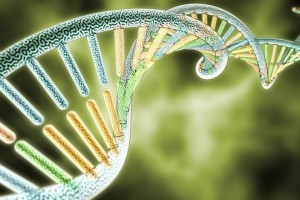What if doctors searched the genes of healthy people for sickness and disease before it even happened? Essentially, that’s what a group of researchers at the National Institutes of Health are doing in a new ClinSeq study. After sequencing the genomes of nearly 1,000 healthy volunteers, the research team discovered that some of the volunteers had DNA mutations that were indicative of an increased risk for rare illnesses.
But here’s the surprise: Next, the researchers provided a customized work-up for these 100 or so people with problematic mutations, and nearly half had the illness forecast by their genes.
This new method of looking for illness in a person after studying their genes is called iterative phenotyping. To parse this, iterative refers to repetition often in a cyclical nature, while phenotype refers to a person’s characteristics resulting from interaction with the environment. In other words, this method requires a flow of genetic and other data back and forth, among individuals and whole families.
I – Word Understanding
DNA mutation – changes or alterations (in DNA sequence)
parse – to look closely at each part
II – Have Your Say
Ethics in genetic screening doesn’t play a role in the science of genetics, but it plays a major role in how the public opinion is formed. Some of the major issues of genetic screening are as follows:
1. Genetic screening will be expensive, who will pay for the procedures?
2. Should screening for common diseases be done?
3. Finding the gene does not necessarily predict severity, will this knowledge create emotional distress?
4. Could prenatal screening allow parents to perform social engineering?
5. Genetic tests are done by drawing blood, how will we ensure it is not done without our knowledge?
6. Genetic knowledge may be used to deny employment, social services and insurance benefits.
7. Banks could use genetic tests to deny loans, mortgages and insurance
349 Predictive Medicine Uses Genome Sequencing To Forecast Illness Before It Happens



